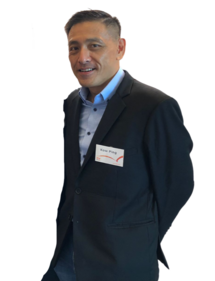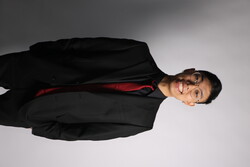Events
Mar 30, 2022
HKU Biomed Entrepreneurship Talk Series (2022-03-30)
HKU Biomed Entrepreneurship Talk Series
Our school has launched the ‘HKU Biomed Entrepreneurship Talk Series’ which aims to stimulate academic’s interest in translating their basic innovations to applications through inviting academics/entrepreneurs to share their experience with startups.
Date: 30 March 2022 (Wednesday)
Time: 4:00 – 5:00pm
Conducted via Zoom: https://hku.zoom.us/meeting/register/tJcsfuiqqz4pHdb_4hRAMzwWR58sUnjD1c5d
Meeting ID: 931 9125 5372
Password: 187545
Title: Expediting Industry, University and Co-Research for Hong Kong in Healthtech for GBA
Speaker: Mr. Kow Ping, Co-founder and Executive Director, Well Being Digital Limited
Biography:

Kow Ping is the co-founder and executive director of Well Being Digital (WBD101). WBD101 is a Hong Kong-based MedTech company that designs hardware and develops algorithms for smart sensing hearable solutions. WBD101 conducts trials with prominent universities all over Asia, including the National University of Singapore, Chinese University of Hong Kong, Hypoxia Lab of the Shenzhen University General Hospital Hypoxia Laboratory and the Singapore General Hospital. WBD101 currently also has collaborations with teams from the Duke-NUS and Malaysia’s UKM. WBD101 has also won numerous international awards for its technology including the Best Wearable Mobile Tech Awards at the Mobile World Congress 2016, Special & Gold Awards at the 43rd Geneva Inventions Conventions, 2016 WITSA Global ICT Award and the inaugural HK City I&T Grand Challenge Innovation Award.
Kow graduated with a Master’s degree in International Management with Distinction from the University of London International Programme and a B.A.Sc (Comp Tech) from Nanyang Technological University. From 2006 until 2012, prior to co-founding WBD101, Kow was Vice President – Strategic Accounts at Perception Digital Limited in Hong Kong. There, he grew major accounts for companies such as Philips, Motorola, and Creative. He also formerly worked in USA, where he held managerial and strategic marketing positions with firms such as Texas Instruments, National Semiconductor, Cyrix Corporation and Cornice Inc.
Abstract:
The China 14-5 plans calls for the use of wearables for stop gaps measure in emergency settings in China (以可穿戴设备为应急检测检验之用) and for Hong Kong to be the medical hub for Greater Bay Area (GBA). Furthermore in view of how the current Covid-19 epidemic exposed the shortage of healthcare manpower and equipment especially in the Hong Kong public hospitals, it is imperative for local public universities and local HK startups to collaborate in the research, development, trial, deployment, productization of promising technology and devices for the GBA. Hong Kong’s strength in the healthtech/medtech segment includes its reputation, credibility, legal infrastructure, easy access to scientific evidence worldwide as well as the proximity to China as its prototyping/manufacturing/commercialization base, however our precious strength in having proper process and procedures is now becoming an obstacle in this fast changing and unpredictable world.
WBD101 does not focus on wearables but an unique class of accurate, convenient and non-invasive sensing device known as Hearables that is more widely used today especially by young people and offer more accurate sensing capabilities than wearables. We would like to share with you about the work we have done in the past, what in-ear sensing is already capable of, and what other areas of sensing collaboration exist.
Speaker: Mr. Brian Chia, Business Development Intern at Well Being Digital Limited, BBMS Year 2 student
Biography:

Brian Chia is a current year 2 student at HKU studying Biomedical Sciences. He joined Well Being Digital last summer as a business development intern and was involved with a variety of roles, managing various stakeholders such as clients, universities, R&D team, and governing bodies. With a passion for healthtech in improving people's quality of life, Brian believes sensing technology in hearables can play a big role in the detection and management of diseases, such as coronary heart disease, stroke, and obesity.
Abstract: I will primarily be sharing my internship experience and offer some input on how I believe hearables can play a big part in cardiac rehabilitation and potentially, telehealth. Kow, please inform me if there is anything you want to change.
ALL ARE WELCOME

